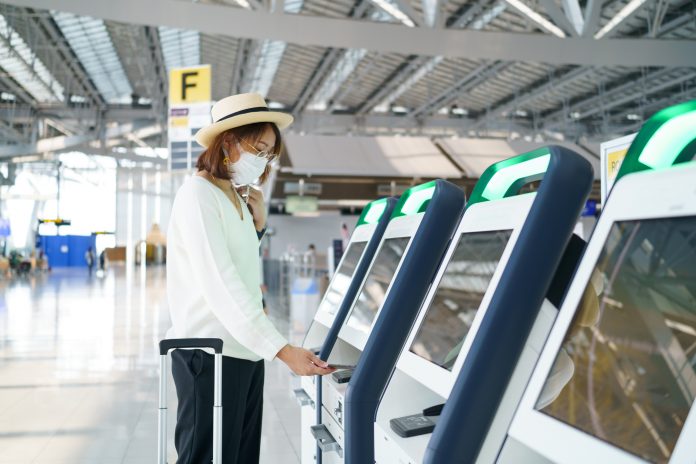Dr Hans Henri P. Kluge & Dr Natasha Azzopardi Muscat explain the importance of putting health at the heart of tourism, including a commitment made in this vein by Europe’s smallest countries to better health systems
The COVID-19 pandemic has had a seismic effect on the health systems and national economies of all countries across the globe. The effects have been felt particularly acutely by the smallest countries, whose economies often rely on imports and tourism, and whose health systems often struggle with shortages of health workers and equipment.
The needs, challenges and opportunities of small countries are not limited to the pandemic and its aftermath. Back in 2013, WHO/Europe established what is now known as the Small Countries Initiative, a sub-regional platform bringing together the 11 smallest countries of the 53 Member States in the WHO European Region (1) – those with 2 million inhabitants or less – as part of an informal network to share experiences and exchange perspectives.
Since then, the initiative has grown into a strong partnership among the countries and a platform for them to speak with one voice in international fora, promoting healthier populations, tackling emergencies and strengthening health systems.
At the latest ministerial summit of these small countries, held in Montenegro at the start of June 2022, the ministers were unanimous in their commitment to 1) better prepare for future emergencies by strengthening the resilience of their health systems; and 2) to place health at the heart of the recovery of their tourism sectors.
Understanding the links between health & tourism
The links between health and tourism are many. The health and well-being of tourists and the tourism workforce alike; safety and security related to travel, water and sanitation, food and hygienic conditions; and socioeconomic and environmental aspects important for health and well-being in host communities – are but some of the most obvious.
Health and tourism promote economic growth and development, creating jobs and providing livelihoods for millions. Globally, in 2019, the tourism sector alone accounted for 7% of the world’s exports and U.S. $3.5 trillion measured in direct tourism gross domestic product (GDP).
But the pandemic has changed things. Since the beginning of 2020, the global volume of international travellers has declined by more than 70% to the lowest levels for 30 years. In 2020 alone, global GDP fell by 3% as a result of the pandemic, with 70% of these losses coming from a decline in exports from the tourism sector in host countries around the world.
Among the 11 countries in the Small Countries Initiative, international arrivals plunged from 26 million in 2019 to 8 million in 2020. And despite positive signs, by the end of 2021 international tourist arrivals in this group of countries were still 56% below pre-pandemic levels.
Three steps to a healthy & sustainable tourism sector
The COVID-19 pandemic has added a new and more urgent layer to the nexus between health and tourism. When borders first closed in the spring of 2020, it took months for travellers to regain their confidence in international travel. And when travel did resume, those on the move were concerned about their ability to access COVID-19 testing and affordable treatment in case of illness or hospitalisation while abroad.
It is with this context and urgency in mind that the health ministers and delegates from the 11 smallest countries in the WHO European Region joined us at the summit in Montenegro and agreed on the importance of health for tourism. Three key ingredients for this emerged.
“The links between health and tourism are many. The health and well-being of tourists and the tourism workforce alike; safety and security related to travel, water and sanitation, food and hygienic conditions; and socioeconomic and environmental aspects important for health and well-being in host communities — are but some of the most obvious.”
First, any effort to relaunch the tourism sector needs to include emergency preparedness. What this means in practice is that countries should prioritise infection prevention and control (IPC), patient mobility, preventive measures (such as vaccination), well-trained health workers, and access to essential medicines and adequate, well-functioning diagnostic facilities and technologies. These health services should be accessible without financial hardship, when and where needed by tourists and host communities.
Second, we have learned that quality healthcare can contribute to the growth of the tourism sector. Destinations with solid health systems, good hygienic infrastructure, safe travel conditions and access to trauma care can attract tourists. Tourists today tend to be better informed and more discerning than in pre-pandemic times.
Thirdly, the nexus between health and tourism can only be reinforced. Through our discussions with health ministers and governments from the 11 countries in the initiative, we have learned that there are many ways for this to happen, including by:
- Involving government at all levels in multi-hazard response planning;
- Including tourists’ needs in all preparedness and response plans;
- Promoting primary healthcare as the first point of contact for those tourists who don’t need hospital care;
- Strengthening communication tools and channels with tourists;
- Identifying vulnerable or disadvantaged groups for economy-wide stimulus packages in small countries.
The outcome statement of the June 2022 summit of the Small Countries Initiative is a blueprint for what actions need to be taken, both for successful emergency response and sustainable tourism. Fostering the sustainability of the tourism sector with health at the centre can improve the social, economic and environmental determinants of health and the overall conditions for health and well-being.
It is our hope that the commitments made by the 11 smallest countries in the WHO European Region can be taken forward, as we seek to exit and recover from the COVID-19 pandemic, across the entire Region and beyond.
References
(1) The 11 small countries are: Andorra, Cyprus, Estonia, Iceland, Latvia, Luxembourg, Malta, Monaco, Montenegro, San Marino and Slovenia.











